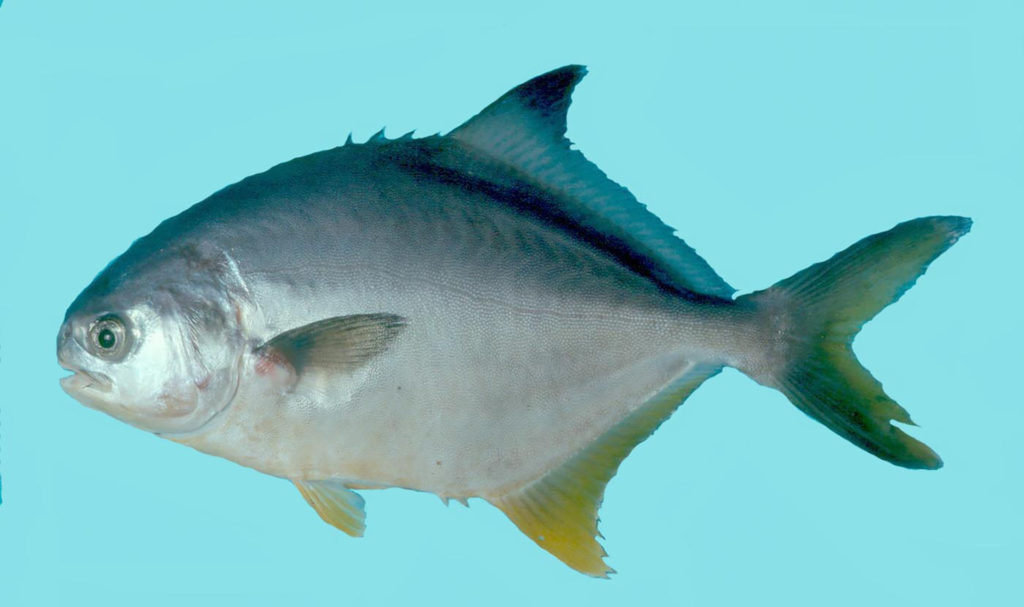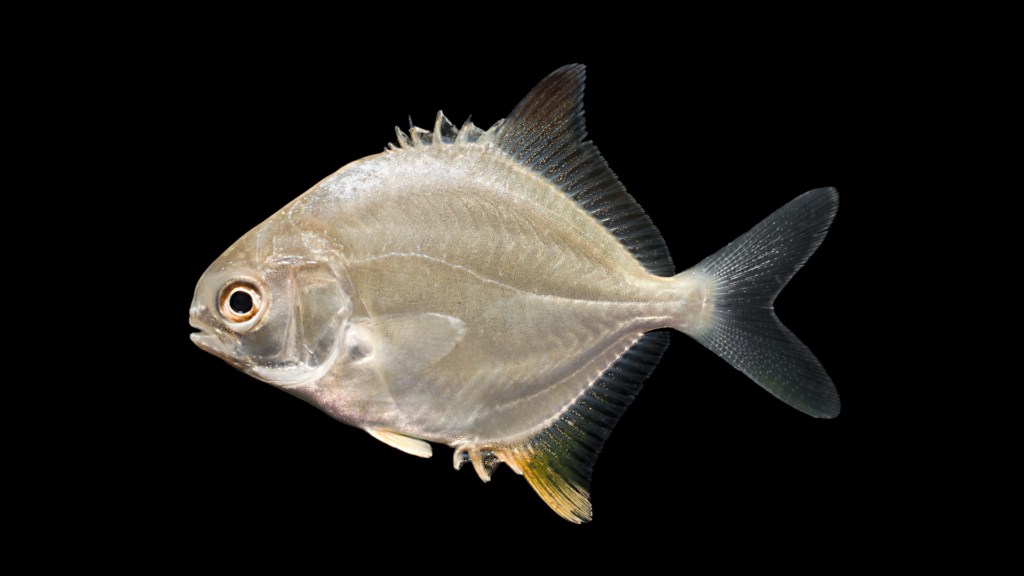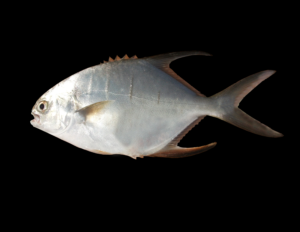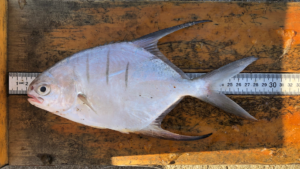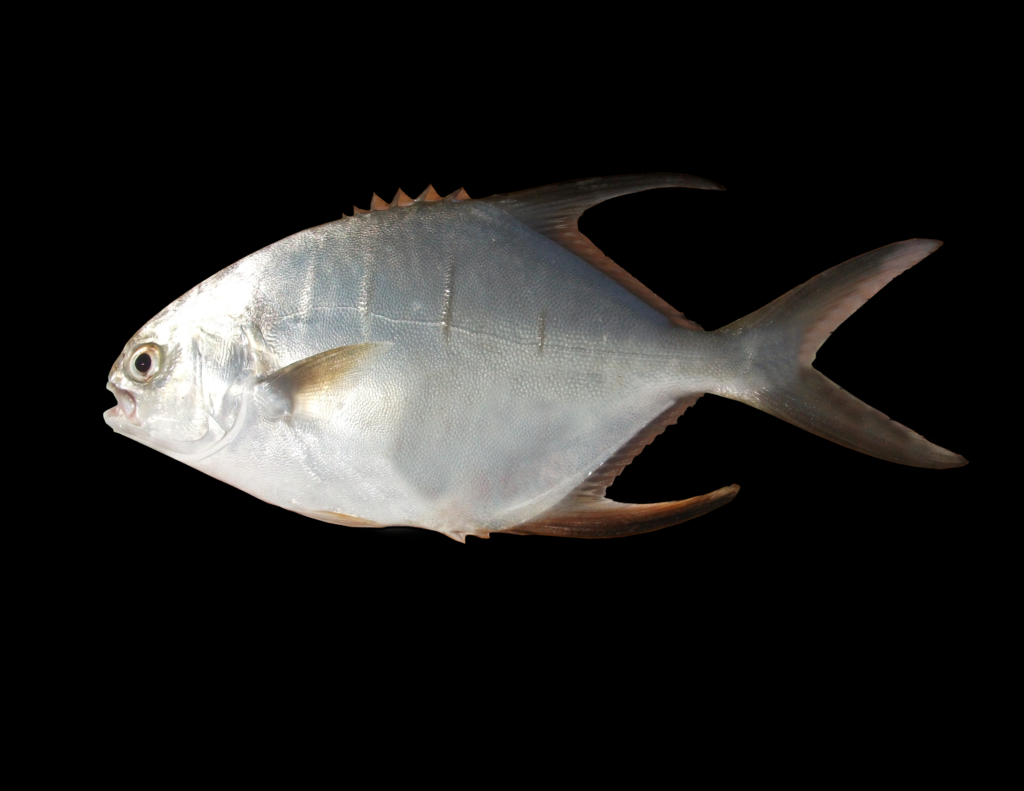
| Family | Scientific Name | Author | Year | Common Name |
| Carangidae | Trachinotus goodei | Jordan and Evermann | 1896 | Palometa |
Trachinotus goodei
Unique Characters: Adults with 2-5 narrow bars (silvery in life) on sides. Dorsal- and anal-fin lobes noticeably elongate in adults, both extending to or behind caudal-fin base and blackish. Posterior straight part of lateral line without scutes. Pectoral fins shorter than head length. Body scales oval-shaped. Upper jaw protractile. No semi-detached finlets. Bases of soft dorsal and anal fins about equal in length. No caudal peduncle grooves.
Similar Species:
Florida Pompano
Trachinotus carolinus
Permit
Trachinotus falcatus
Florida Pompano Trachinotus carolinus. Body silvery with dark (bluish) back. Spinous dorsal fin low. Belly, anal fin, and caudal yellow. Posterior straight part of lateral line without scutes. Pectoral fins shorter than head length. Body scales oval-shaped. Upper jaw protractile. No semi-detached finlets. Bases of soft dorsal and anal fins about equal in length. No caudal peduncle grooves. No narrow bars on sides. Only dorsal fin elongate in adults, and neither dorsal or anal fins extending to caudal-fin base. Dorsal-fin rays 22-27 (usually 23-25). Anal-fin rays 20-24 (usually 21 or 22).
Permit Trachinotus falcatus. Deeper body. May have a large, circular dark oval on the side. Anal and caudal fins blackish in adults, pelvic fin and anal fin bright orange in young. Posterior straight part of lateral line without scutes. Pectoral fins shorter than head length. Body scales oval-shaped. Upper jaw protractile. No semi-detached finlets. Bases of soft dorsal and anal fins about equal in length. No caudal peduncle grooves. No narrow bars on sides. Only dorsal fin elongate in adults, and neither dorsal or anal fins extending to caudal-fin base. Dorsal-fin rays 17-21 (usually 18-20). Anal-fin rays 16-19 (usually 17 or 18).
Gallery
